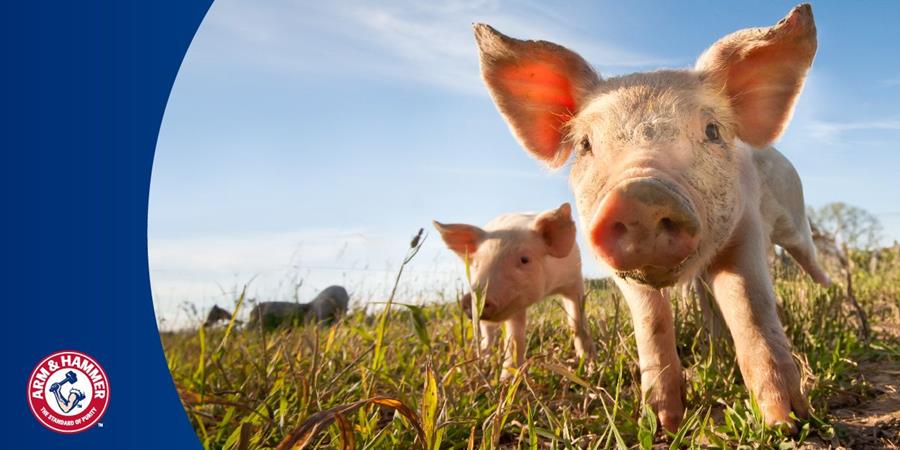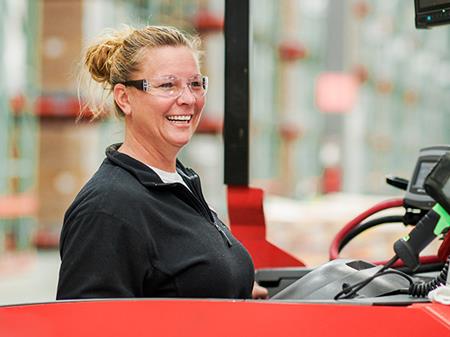If you’ve always had an interest in animals welfare and health, learning about food production jobs behind the food we feed animals, then why not consider the potential of an animal nutrition job? You would be developing advanced feed ingredients in the dairy, beef, poultry and swine industries, amongst other things.

Animal nutrition science plays a critical role in our lives. It ensures that there is enough safe, healthy, and accessible food for everyone, including livestock and pets. By studying the animal microbiome we gain insights into the animals that we consume, leading to improvements in our food systems.
Animal scientists work to minimize waste, enhance efficiency, and create sustainable practices. Their expertise contributes to solving global food crises and shaping a healthier, more nourished world. Learn all about what it means to work in this fascinating job field by reading about these exciting job roles in animal nutrition.
Technical Service Manager
Technical Services Managers play a pivotal role, providing technical support for new product development and offering customer satisfaction. They serve as the bridge between technical expertise and each customer’s individual business needs, and are expected to field, log and respond to technical inquiries. A Technical Service Manager’s responsibilities will include research work, collaborating with university lab trials, and most likely overseeing customer trials as well. They document results from trials and studies and where applicable and work with marketing teams and account managers.
Product Manager
Being a Product Manager in the animal nutrition field not only involves being a strategist but also a hands-on executor, ensuring that products can thrive in what is an active marketplace. A Product Manager’s initial role will be to define the product strategy and set out the vision of the entire team. This will mean thorough market research, working to identify product gaps and opportunities, and analyzing consumer preferences. They are involved in determining the target market and USP that will set their product apart from competitors, collaborating, often collaborating with the R&D team to do so
Account Manager
Account Managers are the team tasked with delivering on sales targets. Account Managers (AMs for short) manage relationships with producers and farmers, and their network of influencers, delivering on defined targets for continued growth. They are expected to build relationships with a targeted group of producers and identify new opportunities with key industry influencers. AMs need to be able to think strategically, as the goal is often to be developing increased sales, primarily through marketing plans and demonstrations of the core product offering to customers. AMs should be able to maintain and update customer and influencer data in a CRM system, but above all they must be effective, engaging communicators.
Supply Planner
A Supply Planner is the linchpin in a dynamic supply chain, adept at minimizing costs and complexity. The role is multifaceted, with responsibility for supply planning and availability, inventory management, and supply chain analysis. This is a role that’s embedded in the detail, navigating the intricate web of logistics and production, ensuring a seamless day-to-day operation and managing inventory. With the level of experience employers generally look for, people in this role need to have an understanding of capacity by location, line, and production variance, and be comfortable shaping production plans and maintaining the fine levels of balance required for continued levels of smooth operation.
Lab Manager
As a Laboratory Manager in microbiology, animal science and ingredients, the day-to-day involves overseeing the day-to-day operations of a clinical laboratory - kind of like a conductor orchestrating seamless harmony within the scientific symphony. A laboratory’s operations fall under the lab manager’s purview, so they’re expected to provide overall direction and assistance to the team, take responsibility for laboratory assays and data analysis and generate the reports which will inform decision-making.
What Does it Mean to Work in Animal Science?
Animal science jobs involve working in areas of chemistry, biochemistry, microbiology, physics, engineering, nutrition, biology and math. At the graduate level, a relevant degree often provides people with a combination of science and technical skills, and it means the chance to develop innovative feed ingredients that contribute to the nutritional benefits of the food chain.
There are several paths you can pursue in this field as it connects areas of product development, engineering, microbiology, and hospitality. The food science industry also offers opportunities in consumer-based research, teaching, regulatory affairs and nutrition. So whether you decide to pursue work with an industry leader, to enter (or re-enter) academia or go for government or an NGO role, there are plenty of opportunities available.
Types of Animal Science Jobs in Church & Dwight’s Special Products Division (SPD) Team
• Technical Service Manager
• Product Managers
• Account Manager
• Supply planner
• Lab Manager
At Arm & Hammer Animal Health and Food Production we’re driven by two signature commitments:
Committed to Industry
We have a long history of generating research-driven solutions so we’re experienced in providing diverse technologies for animal production systems. We involvement in associations that advance progress through research, sponsorship and membership of business-minded and progressive organizations involved in the food chain is key to this.
Committed to Quality
Improving the safety and reliability of our world's food supply is our number one priority. That means we make sure our products are backed by published research so you can always count on their efficacy. We do this by maintaining the highest level of ingredient consistency, regardless of input costs. In manufacturing terms, that means ensuring our facilities hold industry-recognized certifications that elevate quality standards.
These commitments are yet another way we support producers and processors, maintaining our place at the forefront of animal and food production, and maintaining consistent quality so we can meet customer expectations every time.







